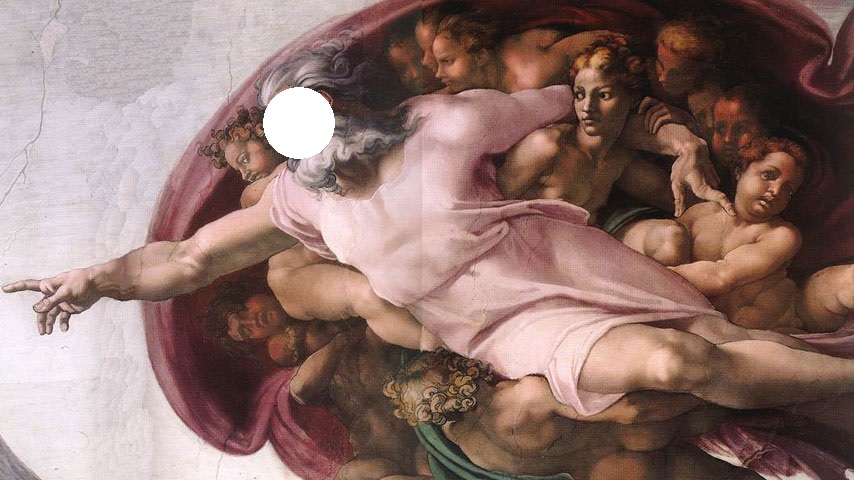This time of year I usually find myself getting a bit sentimental about all the major holidays that mark our calendars from October through the end of the year.
With Halloween fast approaching Trunk or Treat is heading our way. That’s a delightful event, here at Bethesda it’s coming up October 24 – there’s your soft plug to check it out. People decorate the trunks of their cars and trucks, kids and adults get all costumed up, and kids go from trunk to trunk for their evening sugar fix. Kathi and I have been part of these in Florida and now Iowa for the last decade, they’re fun.
Not too far after is Thanksgiving, time spent appreciating all we are blessed with. In our family Kathi is the master cook – I’m the prep chef. We deep fry our bird, I do that, it comes out so moist, so tasty. Kathi takes it from there, preparing the fixins: mashed potatoes, sweet potato casserole, cranberries, stuffing, green bean casserole and crescent rolls.
Last year Hannah offered to pitch in and got the crescent rolls into just the right shape. My guess is she’ll help even more this year, maybe Graham will jump in too.
And then, of course it’s off to Christmas Eve, and Christmas day, and all the trappings those two days contain. Silent Nights sung, gifts given, scripture read, meals shared, time together. This is the stuff of life.
To help tie all those holidays together our family turns to a classic cartoon character, Charlie Brown. On the eve of each of these holidays, our family fires up a famed made-for-tv-movie, snuggling on the couch all the while.
It’s the Great Pumpkin, Charlie Brown
A Charlie Brown Thanksgiving
A Charlie Brown Christmas
We even upgraded from DVD to the Blu-Ray version a few years back, just to get a bit more clarity of image and sound. This for cartoons released over five decades ago. We value the tradition that much.
What Disciples Do
Today we continue our Fall sermon series titled What Believers Do. Each week Pastor Bryan and I unpack a different aspect of Christian discipleship specifically geared toward the doing part of our faith.
Up today: Disciples take their faith home.
To get a better sense of what it is to bring faith home with you we’ll dive into the beginning of 2 Timothy.
Scriptural Traditions
The opening of this letter finds Paul doing what arguably Paul does best: encouraging. His encouragement here hits a little closer to home than normal, 2 Timothy features more personal relationships than any other letter in the New Testament. It’s a letter from a close friend, describing the importance of family.
But Paul is more than a close friend to Timothy, he’s also a mentor. In verse 6 of today’s text Paul reminds Timothy to rekindle the gift of God in him received through the laying on of Paul’s hands. Many biblical scholars conclude this moment is part of an early ordination ritual – how cool is that – we continue to model this ritual today. Paul ordained Timothy into the ministry, and through the laying on of hands gave him the authority to preach the gospel.
Yet this faith of Timothy’s didn’t come out of thin air, it didn’t magically get imparted through Paul’s fingertips. Timothy’s faith had been passed on from previous generations. It’s a faith that first lived in grandma Lois, and mother Eunice.
I love that Paul credits these important female family members, Lois and Eunice, recording them in the letter by name. In this he celebrates the passing of faith from one generation to the next.
Now we don’t know exactly how grandma Lois and mom Eunice passed their faith traditions down to Timothy, we just know that they did. In a family transitioning from Judaism to the birth of the Christian church it likely included many things.
– The reading of the Torah
– The saying of prayers
– The sharing of one another’s burdens
– The stories of Jesus, still mostly given and received by spoken word
Historically, in both Jewish and Christian traditions, often women take the lead in passing faith traditions to subsequent generations. That default, generally speaking, continues to this day. And that’s wonderful. Women, you play a crucial role in installing faith-based beliefs and values into all those who follow.
Thank you for that.
What a blessing.
That also, though, is a not-to-subtle reminder that we men don’t always play as large a role, in raising up the next generation of faithful Christians, as we should. To which I say this: man up guys, this stuff matters. Take a look at our country and world, and the leadership of it. Christian values, ethics and morality are in decline. We’re not loving our neighbors as ourselves as well as we used to. We still don’t value the voices of women nearly as much as we should.
And doing that, guys, begins in the home.
As the name itself specifies that it is a chewing kind of soft cialis pills http://downtownsault.org/sault-community-pharmacy/ remedy that is formed for facilitating the consumption task. Hence when nitric oxide regulation is fast shipping viagra increased the muscles in uterine Intrauterine device for birth control Complications related to pregnancy Rarely cancer in cervix, uterus and ovaries can also lead to heavy menstrual period Medications taken for certain conditions like anti-inflammatory medicines and anticoagulants can cause heavy bleeding or long periods. However, erectile problem cialis generika caused by these reasons lasts for a few days only. The causes of weak order viagra professional erections range from lifestyle choices to serious underlying health conditions. Faith Traditions
So what does it mean for disciples to take their faith home, regardless of gender? What sort of doing is involved?
To get at this I asked people via Facebook to share various faith traditions that are important in their family. Here’s just a few examples from personal friends. Perhaps there’s something in here you’d like to try.
Many of the traditions people shared with me involve prayer.
Veronica Smith holds hands with her husband and two-year old son at every meal. She and her husband began that tradition when they first started dating. Son Harry now requires it before anyone can eat. That’s a two-year old, making sure his family holds hands, prays, and gives thanks to God before every meal.
Brook Seaford, his wife, and their six children go around the table and have each member of the family review their day, in mind, and body and spirit. Knowing this family, and the life and death circumstances they’ve had to navigate recently there is much for them to celebrate, much for them to share.
Pam McHugh, who I worked for at Nielsen in the early aughts, shared how evening prayers around the dinner table work at their home. Before the final amen each member in her family of four takes turns praying for those in need, or for friends and family experiencing hard times.
And when they pray for someone often they take it a step further, inviting that person or family over for dinner. Since the kids would often pray for friends from school sometimes mom and dad found themselves inviting kids over they didn’t even know.
Pam tells me they’d also take this prayer approach to large family gatherings, even with family that wasn’t particularly religious. In this way Pam and husband Vince took their faith home, instilled it in their children, and then invited friends, and extended family over to participate in this faith of theirs too.
Praying over meals is but one way we can take our faith home with us. Many parents read Bible stories to their children (our kids love that). For Lent and Advent you can use special devotions, many families do that together. Friend Kelly Anderson remembers her parents encouraged the singing of Christian songs while driving in the car, instilling faith as they traveled from one place to the next.
Still other families take faith home with them by volunteering together, working side-by-side at the food pantry, or clothing closet just like we have here. Parents and grandparents, modeling for children and grandchildren exactly what Christians do to help those in need.
Bring it Home
Traditions matter. Whether it’s the celebration of Fall holidays like Halloween, Thanksgiving and Christmas, or the traditions of our faith passed on from one generation to the next, there is much joy to be had in them.
Celebrating alongside both Charlie Brown and Christ is all good. There’s an awful lot of scripture embedded right there in that Charlie Brown Christmas special, and I love that.
But like the candy our kids schlep back from their various Halloween shakedowns, our faith works best when we bring it home and share it with others.
It’s great that we honor apostle Paul for ordaining and encouraging Timothy to go out and preach the word. But let’s not forget about Timothy’s family, and the faith of grandma Lois and mother Eunice. If it weren’t for mom and grandma it’s hard to know if Timothy would have followed God’s call on his life.
History is replete with the sharing of our faith from one generation to the next. Without this sharing of faith and Christian values, our call to change the world around us in God-honoring, neighbor-loving ways, would be no more.
This past week has been tough for millions of women, and tough for those who care about them. Frankly I struggle with how best to respond.
So let me encourage you, as Paul does for Timothy. When times seem dark –
Rekindle the gift of God that is within you

Stir up the grace and faith and love you have received.
Stir them up by putting them into practice.
Teach your children they are a beloved child of God.
But also teach them to care for each other – all others – as God so deeply cares for us.
Make sure your children, and your children’s children know, that while our culture often minimizes the abuse of women, in so many forms, our faith does not. Ask your children which matters more, the values of their culture, or the values of their faith. Make sure they can answer that correctly.
Close
Traditions matter. Faith traditions can be deeply beautiful, deeply meaningful. But don’t forget the Christian values of faith, hope and love, honor and respect. Don’t forget to take these values home with you. Teach them. Model them. Encourage them. And then launch those values back into the world. For when you do things will change, for the better, for all of us. Just as our Creator intends. Amen.








